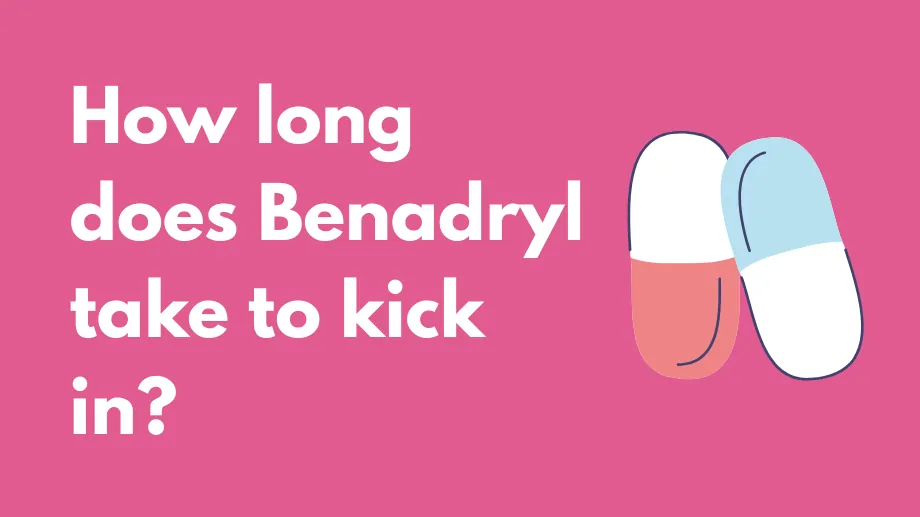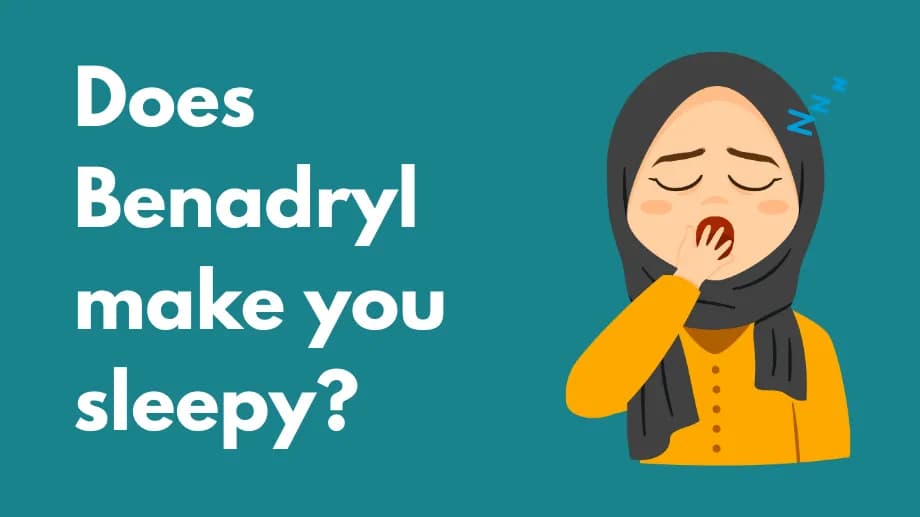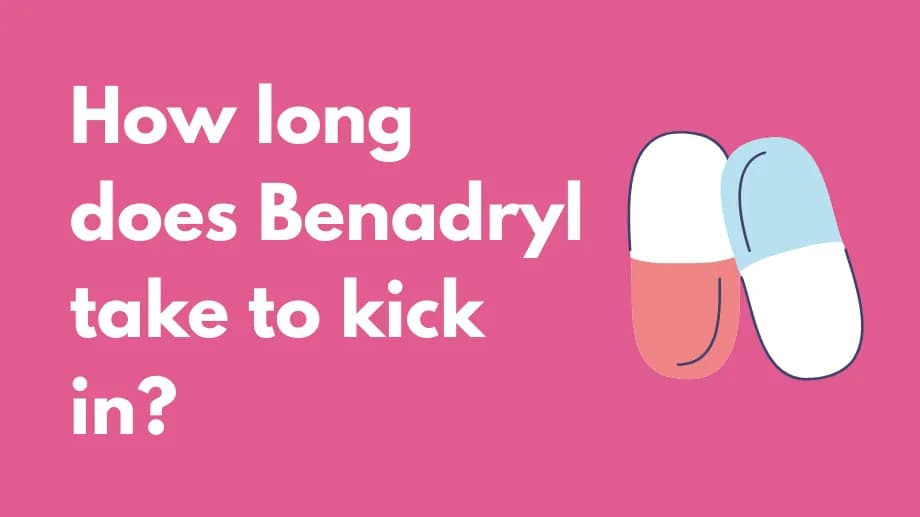How long does Benadryl take to kick in?

Benadryl (diphenhydramine) is a first‑generation antihistamine used for allergy relief, itching, motion sickness, and as a sleep aid. It generally starts working within 15 to 30 minutes, though factors like dosage form, body weight, and symptom treated can affect onset. Oral liquids may act faster than tablets or capsules. Full effects may take up to 2 hours, so avoid extra doses and consult your provider if symptoms persist.
How long does Benadryl last?
Benadryl peaks around 2 hours after a dose and relieves symptoms for 4 to 6 hours. Diphenhydramine remains detectable:
- Adults: up to 60 hours
- Older adults: up to 90 hours
- Children: around 35 hours
How does Benadryl work?
Allergens trigger histamine release, causing runny nose, sneezing, itching, and hives. Diphenhydramine blocks H₁‑histamine receptors, reducing these symptoms and causing drowsiness when used as a sleep aid.
Side effects of Benadryl
Common side effects:
- Drowsiness
- Dry mouth, nose, or throat
- Headache
- Dizziness
- Constipation
- Blurred vision
Other possible side effects:
- Nausea or vomiting
- Decreased appetite
- Weakness
- Nervousness or hyperactivity (children)
- Difficulty urinating
Rare serious side effects:
Shop Medications
- Anaphylaxis (hives, facial swelling, breathing difficulty)
- Worsening of glaucoma, enlarged prostate, emphysema, thyroid or kidney disease
Can you take Benadryl with other medications?
Consult your provider before combining Benadryl with other drugs or supplements. Interacting medications include:
- Antidepressants, anti‑anxiety drugs, sleeping pills, opioids
- Any medication that causes drowsiness, dry mouth, or urinary retention
Who may not be able to take Benadryl?
Do not use if you have:
- Allergy to diphenhydramine or other antihistamines
- COPD or asthma
- Angle‑closure glaucoma
- Stomach blockage
- Liver or kidney impairment
- Urinary retention issues
- Seizure disorders
- Thyroid disease
- Pregnancy or breastfeeding without provider approval
How quickly does Benadryl make you sleepy?
Drowsiness typically begins within 30 minutes after an oral dose. Plan to be in bed when sleepiness starts if using it as a sleep aid.
When is the best time to take Benadryl?
Timing depends on use:
- For sleep: 30 minutes before bedtime
- For allergy relief: every 4–6 hours as needed, avoiding activities requiring alertness
Sources
- Diphenhydramine hydrochloride – drug summary. Prescribers’ Digital Reference. Accessed Mar 7, 2025.
- Diphenhydramine. Treasure Island (FL): StatPearls Publishing; 2025 Jan–. Accessed Mar 7, 2025.





